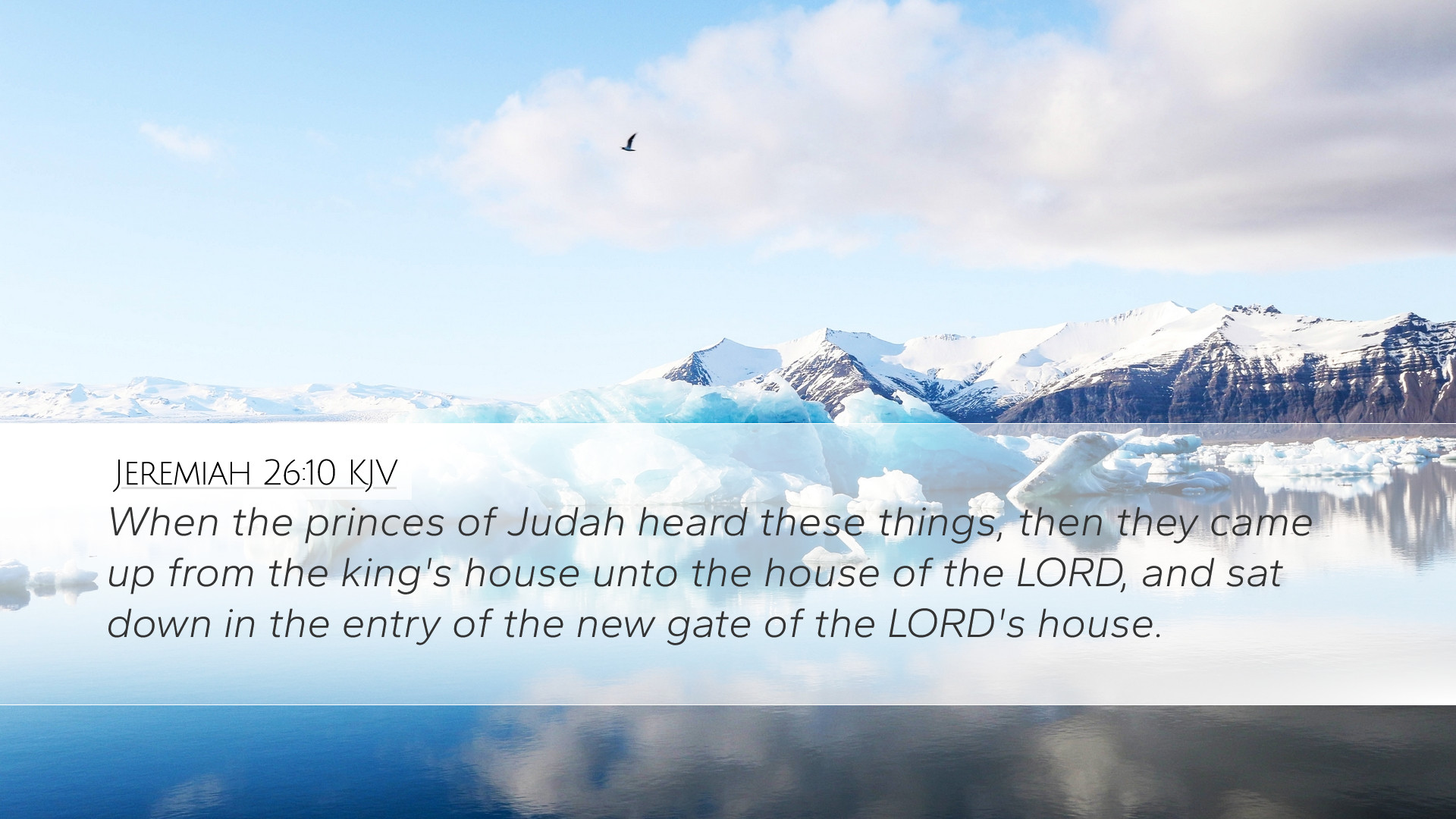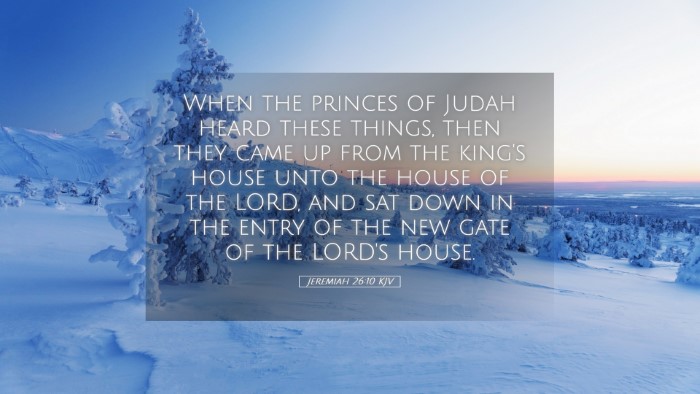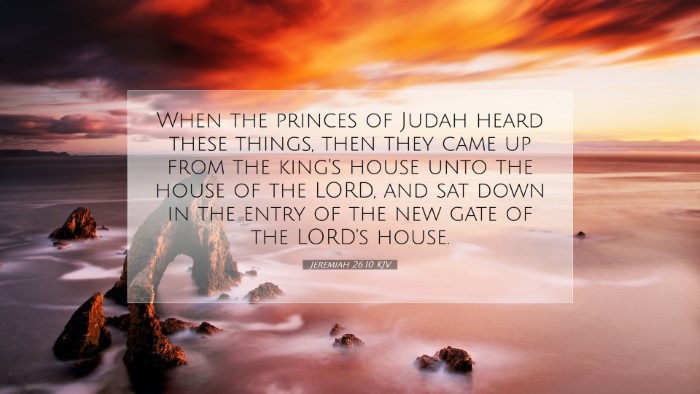Commentary on Jeremiah 26:10
The context of Jeremiah 26:10 is vital for understanding the prophetic ministry of Jeremiah and the responses he elicited from the leaders of Judah. This verse states:
"When the officials of Judah heard about these things, they went up from the royal palace to the house of the Lord and took their place at the entrance of the New Gate of the Lord's house."
Contextual Background
The book of Jeremiah is set against a backdrop of impending judgment upon Judah due to persistent idolatry and social injustice. Jeremiah, called as a prophet to deliver God's message, often faced opposition and hostility for his unpopular proclamations.
Insights from Commentaries
-
Matthew Henry notes that the officials of Judah were compelled to respond to Jeremiah's prophecies. His commentary suggests the gravity of their actions as they congregated not for worship, but to discuss a troubling matter. Henry emphasizes that although they acted out of concern, their intent was to stifle the prophetic voice of Jeremiah rather than heed it.
-
Albert Barnes offers a detailed analysis of the political and social climate of the time, indicating that the officials' visit was a mix of alarm and intrigue. Barnes points out that the New Gate symbolizes a critical junction between the temple's sacred space and the city's political life. This gate serves as an important setting for divine encounters and human decision-making.
-
Adam Clarke highlights the significance of the leaders' actions as indicative of a larger spiritual malaise within Judah. Clarke reflects on the complacency of the leaders, who, while acknowledging the seriousness of Jeremiah's message, still wrestled with the implications of reform and repentance. His commentary encourages readers to consider the tension between authority and divine calling.
Thematic Considerations
Several themes emerge from this verse that resonate deeply with the spiritual condition of leaders and congregations today:
-
The Conflict of Authority: The presence of the officials at the New Gate illustrates the tension between divine authority as expressed through the prophet and the human authorities of Judah. This sets a precedent for present-day discussions regarding church and state, as well as the role of spiritual leaders in confronting secular powers.
-
The Prophetic Voice: Jeremiah represents the voice of God in a time of crisis. Leaders’ reactions to prophets can vary widely—ranging from hostility to receptiveness. It raises important questions for modern-day theologians about how the Church reacts to prophetic messages today.
-
Courage vs. Complacency: The officials' initial reaction expresses fear of Jeremiah's dire predictions. Pastors and theologians can reflect on how spiritual leaders must balance courage in the face of adversity with a pastoral care that seeks to comfort and build faith within their congregations.
Practical Applications
Jeremiah 26:10 provides a rich text for reflection and application:
-
Listening to God's Voice: Just as the officials responded to Jeremiah's message, leaders and believers today must be open to the truth of God's Word, even when it's uncomfortable. It's imperative for pastors and students of scripture to cultivate discernment to recognize God’s instruction in their lives.
-
Engagement in the Church's Mission: The gathering of officials at a sacred space urges the Church to reevaluate its mission in the world. Believers should be proactive in their communities, embodying the principles of justice and mercy that Jeremiah found lacking in his society.
-
Embracing Reform: As we encounter prophetic messages, whether through scripture or spiritual leaders, embracing reform can lead to spiritual renewal. The Church must be willing to change and grow in accordance with God's guidance, as the officials in this passage were prompted to reconsider their own positions.
Conclusion
Jeremiah 26:10 serves as a pivotal moment within the narrative of Jeremiah, offering profound insights into leadership, authority, and the prophetic call. By engaging with the themes explored by commentators such as Matthew Henry, Albert Barnes, and Adam Clarke, pastors, students, and scholars are invited to deepen their understanding of the sacred obligation to listen to God's voice amidst the challenges of today’s world.


